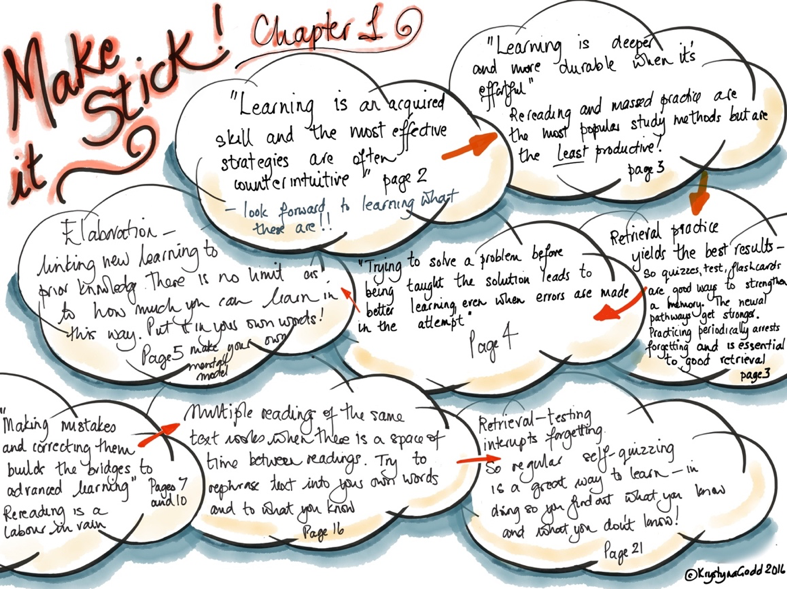
Consider the following study strategies, which of these do you feel will have the strongest benefit on your learning?
- Reading and re-reading the text
- Highlighting key portions of the text
- Taking a practice quiz
- Speaking with classmates about the text
- Reviewing the correct answers to example problems
Evidence suggests that rereading and highlighting are some of the most common, yet least effective strategies for learning new material. Speaking with others about your courses can always be beneficial to help clarify your own understanding, and share your expertise. But, one of the most effective ways to learn new material is retrieval practice, or more simply, self-quizzing
Retrieval practice is the act of trying to recall information from long-term memory, without the aid of notes or other materials. So, taking a practice quiz to test your knowledge would be the most effective strategy on the list, but, practice tests aren’t the only way to use self-quizzing strategies. When you’re first reading through your text, stop at intervals and attempt to recall what you’ve just read. Ask yourself; can I recall the significant points being made, am I able to put them into my own words, do I understand how they relate to my course and what I already know?
Simple strategies that force you to exercise your mind, and practice retrieving information from memory are some of the most beneficial tools you have to master new material. The study strategies below all rely on the benefit of retrieval practice to strengthen your memory, and your mastery.
Spacing your study sessions out over time is just another way of saying, don’t wait until the last minute. It is important to make sure that studying for that big exam doesn’t start just a few days before the exam. Instead, students should schedule several focused study sessions for each class throughout each week. By spacing out your studying, you allow your brain to learn the material step-by-step over time, rather than trying to learn it all at once during a cramming session right before the exam.
Interleave your study sessions so that you’re not focusing on the same topic for extended periods of time. We often study and practice one type of problem over and over until we think we’ve mastered it before we go on to the next topic. This is an example of blocked practice. Most textbooks are structured into blocks of related content reinforcing this practice. However, blocked practice is not as effective as interleaved practice. Instead, try mixing up the examples or problem types, or switch between assigned chapters. The goal is to constantly challenge your ability to recognize the problem type, and appropriate solutions.
Elaboration is the process of finding and connecting layers of meaning in new material. As you practice recalling new ideas consider how they correlate with what you already know about the material. Put the ideas into your own words, and if possible, come up with a visual metaphor to help later recall.
Reflection is a combination of retrieval practice and elaboration. With reflection you add layers of meaning and reveal new connections you may have overlooked. Reflecting upon what you’ve learned and asking yourself questions about your process is one of the best ways to strengthen your study strategies. When you receive back your graded assignment or exam, reflect upon the study strategies you used, how well they worked, and what you might do differently next time.

Source: Make it Stick: The Science of Successful Learning
https://www.retrievalpractice.org/make-it-stick
Licensed under Creative Commons BY-NC-SA 4.0
Make it Stick
These strategies and many others can be found in Make it Stick: The Science of Successful Learning, by Peter Brown and others.
Next steps
- Start early and space out your study sessions when learning new material.
- Use down time during the day for retrieval practice. Simply recalling ideas and putting new concepts into you own words, will make future recall easier and more reliable.
- Reflect upon your learning. The brain is motivated by challenge, so as you think about new concepts you have learned, you trigger internal rewards that can excite your interests and motivate more learning.
- Use the Study Cycle to keep your learning on track.
- Learning is a critical skill necessary for academic and professional success – keep on learning how to learn!